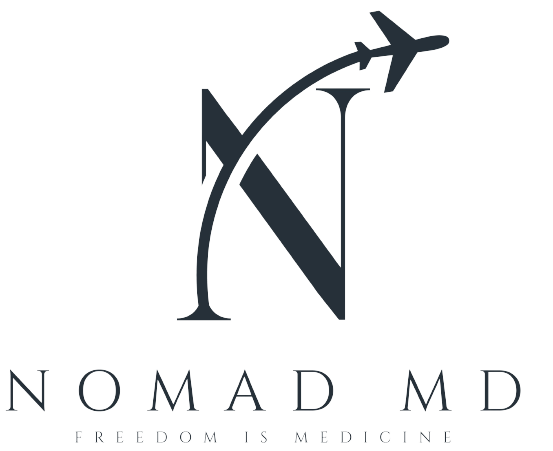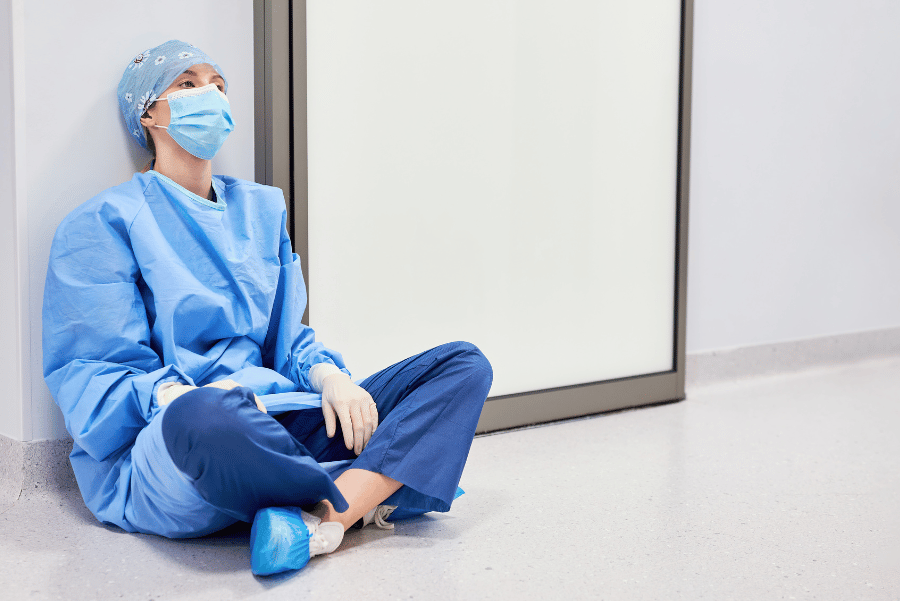Remember when Covid hit the world and hospitals were completely overwhelmed? There were a ton of pictures of healthcare workers sitting somewhere, exhausted, overworked, and close to a mental breakdown.
That was then, you might say. Now the situation has calmed down and normal day-to-day life has returned to the hospitals, right? But the reality is different. Undoubtedly, the prevalence of burnout in the United States has been influenced by the presence of Covid.
Dr. Debra Houry, the Chief Medical Officer at the Centers for Disease Control and Prevention, highlights in a Forbes article of 2023 that the challenges within the workforce, exacerbated by the COVID-19 pandemic, have deepened. The CDC reports an increase in fatigue, depression, anxiety, substance use disorders, and suicidal thoughts among workers.
“Burnout among these workers has reached crisis levels.”
Understanding Burnout
Clinical pressure has risen over the last 20 to 30 years, as doctors are seeing more patients a day, with less time for each one. Naturally, the desired care is not delivered, and doctors end up feeling that they haven’t done their best.
As a result, they fall into a “moral injury,” the experience of sustained and enduring negative emotions that results from the betrayal of one’s core values. Therefore, many times physicians in those circumstances fall into burnout, a multidimensional syndrome involving emotional exhaustion, cynicism, and a reduced sense of personal accomplishment.
The professional demands of long working hours, administrative burdens, and the emotional toll of patient care contribute to this epidemic. The cost of burnout is immense, affecting physicians’ well-being.
4 Reasons Why Burnout is Not the Enemy
This all sounds quite negative and frightening, but I want to offer you the bright side of burnout. You might wonder how there can be a bright side, so let’s dive in to four possible benefits of this professional challenge.

Redesigning Lives
When you fall, after a good cry, what are you most likely trying to do? Get up. Let’s try to shift this idea towards burnout.
When experiencing burnout, there is a good chance that you realize that changes need to be made in your professional and personal life. Let’s call it a redesign, where we start to prioritize non-negotiable self-care, which often leads us to firmly establish personal boundaries and uncover new professional aspirations.
It might be surprising, but burnout becomes the stimuli for alternative career and entrepreneurial exploration, overlooked in medical education but crucial for navigating the business aspects of healthcare.
Physicians discover untapped potentials and new skills, turning the challenges of the healthcare landscape into opportunities for creative problem-solving.
The Power of Self-Care
As mentioned, burnout teaches the invaluable lesson of self-care, prompting practices that foster physical, mental, and emotional health. Most interestingly, we have the opportunity to engage in a transformative shift of our perspective.
Self-care is no longer a “luxury” but a necessity. It becomes more and more evident that a well-nourished healer provides holistic care to patients.
Redefining Roles
Through this shift of focus to self-care and eventually uncovering newfound skills, we allow ourselves to have a broader view of possibilities. The traditional way didn’t work out and even worse, was dangerous for our health, so a new or alternative path must be found.

Innovative solutions can come out of burnout, helping us to find ease through the superpower of delegation, and simplifying our roles and responsibilities so that only those assignments that are in alignment with our deepest values and interests are the ones that remain. The strict boundaries of traditional medicine dissolve as burnout becomes a catalyst for embracing the support of others and thinking outside the box.
Redefining Lifestyles
Experiencing burnout prompts physicians to reconsider and reshape their lifestyles by integrating personal and professional aspects to achieve a more harmonious balance.
This transformative process empowers them to surpass conventional boundaries, emerging as resilient individuals who are no longer confined by previous limits. Burnout, in this context, catalyzes a comprehensive lifestyle redesign, enabling doctors to break free from the molds that once rigidly defined their identity.

As physicians surmount with burnout, they embark on a journey of introspection and intentional adjustments, recognizing the importance of achieving equilibrium between their personal and professional lives. This deliberate integration of aspects beyond their medical roles allows them to cultivate resilience and adaptability in the face of demanding challenges.
Celebrating the Freedom Burnout Brings
Burnout, as unpleasant as it is, does need to be feared as much as we think if we acknowledge it as the start to a transformative journey. The path taken until then didn’t work, so it is time to pivot and shift, beginning with the most important: focusing on ourselves.
Burnout prompts the cultivation of new skills, the embrace of self-care, and the integration of innovative approaches. As physicians, let’s share in this awakening, celebrating the freedom that burnout can bring and reshaping the healthcare system to value the well-being of both patients and providers.

